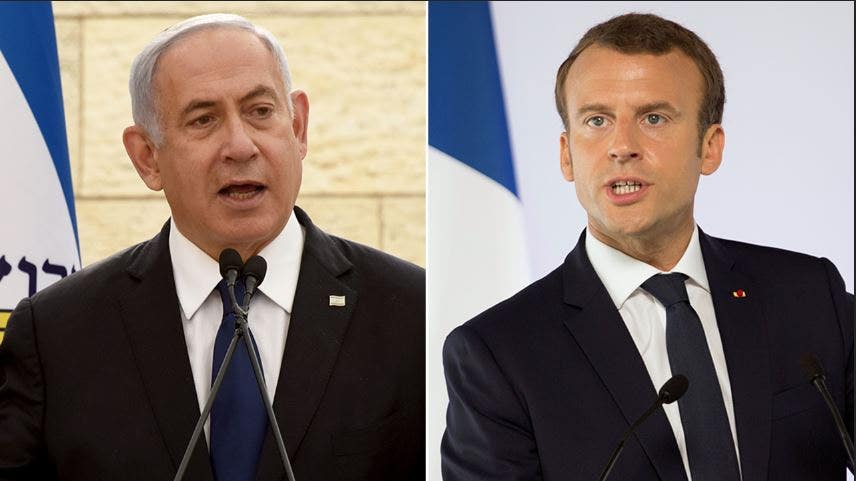Israeli Prime Minister Benjamin Netanyahu criticized French President Emmanuel Macron and other Western leaders for calling for an arms embargo on Israel in response to its airstrikes against Hamas in Gaza. Netanyahu accused them of siding with barbarism led by Iran and called their stance a “disgrace.” He emphasized that Israel would continue to fight against terror forces, with or without their support. Netanyahu highlighted that Israel is defending itself on seven different fronts, including Hamas in Gaza, Hezbollah in Lebanon, the Houthis, Shiite militias in Iraq and Syria, terrorists in Judea and Samaria and Iran.
In response to Macron’s statement that France would no longer supply arms to Israel, Netanyahu emphasized the importance of Israel defending civilization against fanaticism, and vowed to fight until the battle is won in the interest of peace and security in the world. He highlighted the complex geopolitical situation Israel is currently facing, with ongoing hostilities from various terrorist groups and Iran. On the same day, the Israel Defense Forces dismantled a Hezbollah underground command complex in Lebanon, preventing a potential attack on Israeli communities in the Galilee.
On the other hand, the U.S. continues to supply arms to Israel, despite President Biden expressing disagreement with Netanyahu’s handling of the conflict in Gaza, where many civilians have died. Biden has called for a cease-fire and expressed uncertainty about Netanyahu’s motivations, but emphasized his administration’s support for Israel. Netanyahu denied any attempts to influence the November election and reiterated his commitment to providing support to Israel. The ongoing conflicts in the region have highlighted the complex dynamics at play and the challenges facing both Israeli and Western leaders.
Netanyahu’s criticism of Macron and other Western leaders underscores the divisions in international responses to the conflict between Israel and Hamas. The calls for an arms embargo on Israel have been met with strong opposition from Netanyahu and other Israeli officials, who view such actions as a betrayal in the face of terror threats from Iran and its proxies. The continued supply of arms from the U.S. to Israel further complicates the situation, with Biden expressing concerns about civilian casualties and advocating for a cease-fire, while Netanyahu remains committed to defending Israel’s interests.
The IDF’s successful raid on a Hezbollah underground command complex in Lebanon demonstrates the ongoing security threats faced by Israel and the need for constant vigilance against potential attacks. The dismantling of the complex underlines the IDF’s commitment to protecting Israeli communities from terrorist threats. The complex geopolitical landscape in the region further complicates efforts to achieve lasting peace and stability, with multiple fronts requiring Israel’s attention and military resources. As the conflict continues, the role of international actors such as the U.S. and France will be crucial in shaping the path forward towards potential resolutions and lasting peace in the region.















